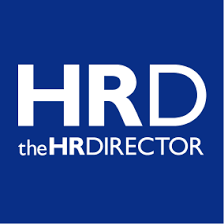Without question Up/Reskilling is both the lock and key for overcoming talent shortages; in fact, it’s at the heart of overcoming so many people-related challenges we face.
This is not going to be news to anyone reading this! So, the question is how? Our existing approaches to solving this have not yielded the desired results, and the challenges continue to mount.
According to the CIPD’s HR in Numbers*, the HR profession has grown by 42% in the last decade, yet we continue to see reports of pressure and strain on our HR resources.
New challenges are impacting people arising from geopolitical challenges and new social expectations and pressures, the latest being EDI, Hybrid Working and Well-being. More will be added to your plate, yet it seems nothing ever gets cleaned off it.
- Our most experienced working generation, “Baby Boomers,” hit an average age of 65 in 2021 and all boomers will be 65 by 2030, meaning some of our most experienced workers have left or are leaving the workforce.
- 50% of all employees will need reskilling by 2025, as the adoption of technology increases, according to the World Economic Forum’s Future of Jobs Report, with 8 out of the top 10 skills required being “Soft/Behavioural.”
Hybrid working has heralded exciting opportunities and fresh challenges for businesses seeking to grow their talent and develop their people. On their part, people enjoy and benefit from the opportunity to work much more flexibly.
However, it is natural that they aspire to grow both personally and professionally, and it needs to be clarified how that development is available in a hybrid working world.
Many organisations appear to be wrapped up in old ways of tackling the development question. These outdated methodologies often involve an almost hopeful approach, consisting of ad hoc workshops and courses, with the intent of somehow helping employees to gain the skills they need to help the organisation and themselves to be successful.
This often-scrambled approach may benefit some. However, many people either receive access to development, which doesn’t really hit the mark, or they don’t receive any development opportunities.
We May Need to Rethink a Few Things.
Why do we own everything?
How do we shift both the responsibility and capability for growth and change to the people who benefit and can change their behaviours? Employees!
The Challenges.
- Organisations may be aware that technology and artificial intelligence is progressing to the extent where this should be easier. However, it is not ordinarily clear how it can be accessed and where the investment would be best placed to benefit the many.
Behaviours are at the heart of most challenges we face, and they are the hardest changes to make. You can’t change behaviours the same way you change technical competence.
- Managers are the conduit to people-related interventions but face multiple pressures from customers, product, management, results, and their people. Few have the capacity or capability to deliver effective change – they are bottlenecks to implementing the processes and policies.
- Individuals often have little empowerment or capability to manage and own their careers. So, they perceive little option but to point their fingers upward and wait to be served. Yet they hold the key to identifying the changes required to unleash performance, well-being, and satisfaction.
We must stop trying to solve problems from the outside in; we must go from the inside out. We can reverse engineer HR and solve the talent drain at the same time.
It is simply unsustainable for organisations to attempt to turn the wheel faster and, thereby, hope to generate the correct development consistently at the right time for the right people. Instead, we argue that it is time for individuals to own their personal growth and development.
The Benefits Are:
- Individuals – we put the power and responsibility of change and enlightenment in the pockets of individuals.
We enable them to self-identify and help them improve their competence and performance.
- Managers – we equip them with shared insight and intelligence of individual and team self-reflection against companywide defined and consistent standards.
Supporting honest conversations and impactful coaching and development interventions
- HR – we provide the means to change and upskill behavioural competence, mitigate issues and provide accurate intelligence of needs and interventional requirements.
Providing means to focus on strategy, technical and business development needs.
Technology can make it easy for comprehensive softskill frameworks to be developed and a much more targeted approach to be taken to help people evaluate their areas of strength and opportunities for development.
This approach can apply across the spectrum of both the work environment and their health and well-being. Such techniques stimulate enthusiasm and energy from the individual to own their development.
In turn, the organisation identifies, and cures root causes, collectively strengthens, and retains valued talent.
A New Era for Personal and Organisational Growth.
The world, its challenges and expectations have changed.
We must re-engineer how we do things to make ends meet, create meaningful, sustainable change and save our talent.
https://www.cipd.co.uk/knowledge/strategy/hr/uk-people-profession-numbers?utm_source=mc&utm_medium=email&utm_content=cipdupdate_23112022.F1L1_People+profession+in+numbers&utm_campaign=cipd_update&utm_term=8332142




